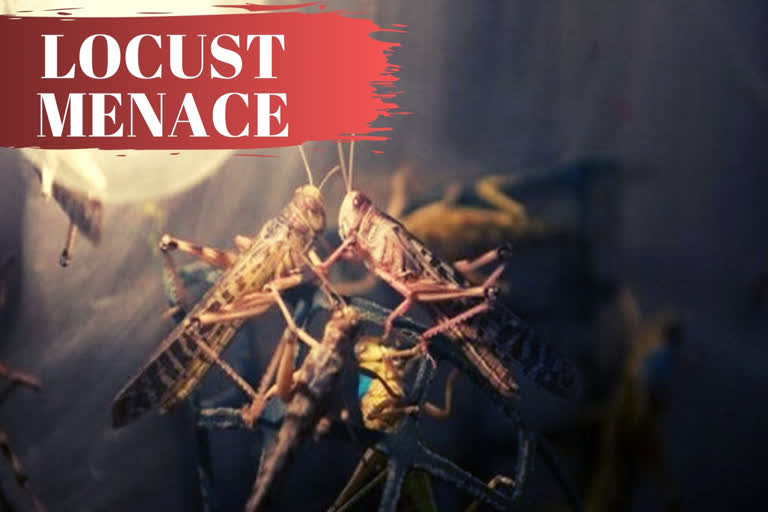Jaipur: As farmers on the western border of Rajasthan face the worst attack of locusts coming from neighbouring Pakistan, there is now danger of the swarms of insects laying eggs which can lead to even more damage to crops.
Officials said that one locust lays around 100 eggs and hence it will be very tough to control the menace.
The locusts have already affected around 11 districts in the state including Jaisalmer, Barmer, Bikaner, Sriganganagar, Jalore, Hanumangarh, Nagaur, Churu, Pali, Sirohi and Dungarpur. Both khareef and rabi crops spread over lakhs of hectares of land have been damaged by them.
Now the threat of locust eggs poses all the more challenges for farmers, they said.
Read:| Army carries pregnant woman in waist-deep snow; she later gives birth at Baramulla hospital
K.V. Choudhary, Circle Officer, Barmer said, "The locusts start giving eggs when the temperature touches 15-20 degrees. As it is winter for the next few days, we are not expecting these locusts to give eggs. However, the threat shall increase with rising temperatures," he said.
When asked about the extent of crop loss, he said, "Farmers have really incurred big losses which can be estimated when girdhwari report as asked by Chief Minister Ashok Gehlot is prepared. The district collector has already ordered tehsildars and other officials to conduct a survey and give a report in the next two days," he added.
According to LWO officials, the locust menace has been ongoing since May 2019 which continues till date despite all measures taken.
On why the locust menace could not be checked in the last six months despite it affecting crops since May, they said, "the challenge is that a new swarm comes every time the air direction changes. We have been taking adequate actions. During night hours when these locusts stop flying and take rest, we attack killing them right there. Those left out are being hit the next day when they sit, but the swarms coming this time are really big."
The Locust Warning Organisation (LWO), which is headquartered in Jodhpur, termed it as the biggest locust attack in the last four or five decades.
The year 1993 witnessed the biggest attack earlier and the affected area span has already surpassed it this time. Coming months will pose a challenge as locusts numbers in Iran and Pakistan is alarming and summer breeding time for them is also approaching," said LWO Deputy Director K.L. Gurjar.



